
1.435Club是由Web3项目方和Web2互联网大厂Crypto爱好者组成的Web3组织,1.435米是现代火车的轨道宽度标准, 我们的宗旨是做更多价值连接的事情,让每个人找到属于自己的Web3机会。
The founder of OpenAI has also issued a cryptocurrency project with bigger ambitions than ChatGPT
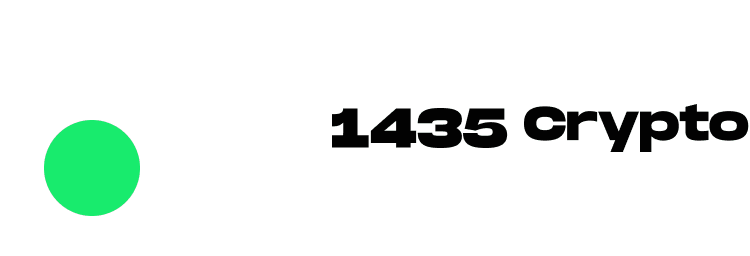
They are unique. They are rebellious. They cause trouble. They are out of place. They see things differently. They don't like to be stuck in a rut. Nor are they willing to rest on their laurels. You can agree with them, disagree with them, glorify or denigrate them. But just don't ignore them. Because they change ordinary things. They push humanity forward. Maybe they are lunatics in the eyes of others, but they are geniuses in our eyes. Because only the people who are crazy enough to think they can change the world... can actually change the world. — Jobs
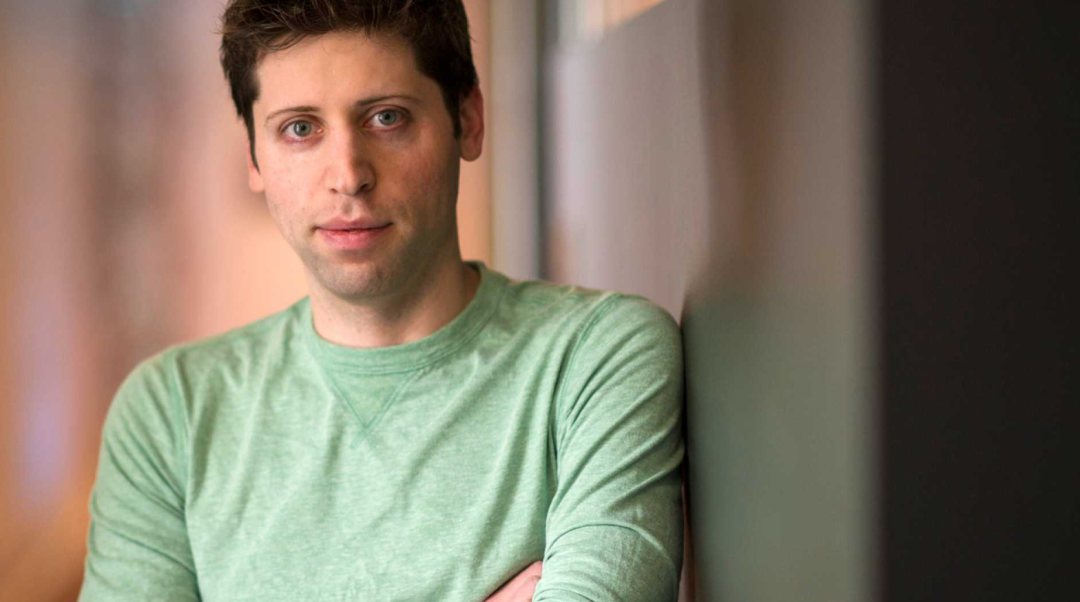
Recently, OpenAI's ChatGPT has led a wave of AI market boom in the global market, but in fact, OpenAI founder Sam Altman (Sam Altman) has already personally founded an encryption project - "World Currency" Worldcoin, which aims to launch "a new, collectively owned global currency, distributed fairly among as many people as possible."

Fair distribution of cryptocurrencies to everyone
Data shows that there will be more than 300 million cryptocurrency users worldwide in 2021, and the average cryptocurrency ownership rate is only 3.9%.
In this context, Worldcoin proposed a pure and somewhat crazy vision: "Connect the first billion users in an encrypted network shared by everyone".
It is called "crazy" because it took 13 years for Bitcoin to reach the milestone of 300 million users.
But the Worldcoin team makes a case that’s irresistible: “Revolutionary new technologies like blockchain and cryptography can allow us to collectively do something that even governments can’t — increase individual empowerment and opportunity globally equality".
Such a romantic narrative naturally attracted some top VCs:
In June 2020, Worldcoin raised $25 million at a valuation of $1 billion, Digital Currency Group, Coinbase Ventures, a16z, Multicoin Capital, and angel investors including LinkedIn founder Reid Hoffman and FTX founder Sam Bankman-Fried Ginseng cast. At the end of March 2021, Worldcoin is seeking to raise another US$100 million in financing at a valuation of US$3 billion, and a16z continues to increase its stake.
Worldcoin is a Layer 2 network running on Ethereum, and the supply limit of Token is 10 billion. Except for the 2 billion coins that will be reserved for the Worldcoin Foundation and investors, the remaining 8 billion coins will be freely distributed around the world.
However, such a long road will inevitably encounter some obstacles-the primary problem of large-scale distribution is: how to distribute Tokens to real "people" instead of codes or machines? How to avoid repeated claims by the same person? Namely, how do you prove it's you without doing any KYC?
To this end, Worldcoin has launched the most powerful and controversial user airdrop activity in the currency circle - the biometric leader airdrop .
Crypto Eye Orb
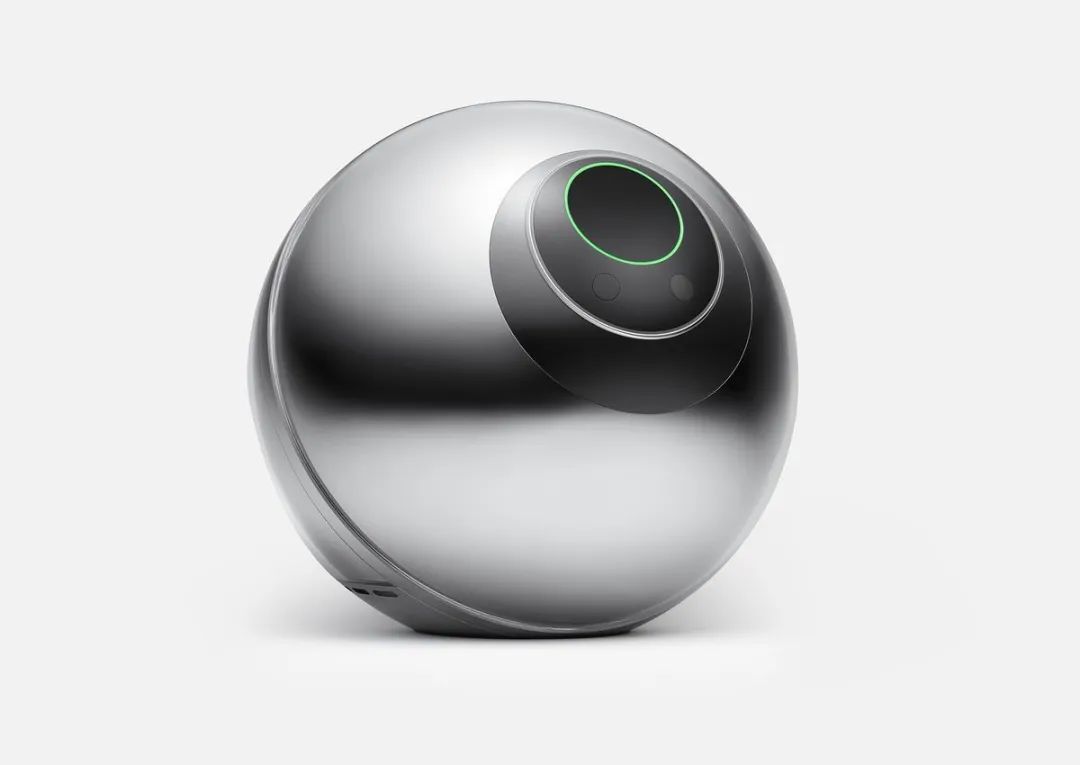
A thousand years ago, gypsies used crystal balls to predict the future; today, Worldcoin operators use Orbs to distribute cryptocurrency to people.
The Orb, which looks like an eyeball, is actually a chrome-plated iris recognition device about the size of a volleyball; designed by Swedish industrial designer Thomas Meyerhoffer (who previously worked for Apple and Porsche).
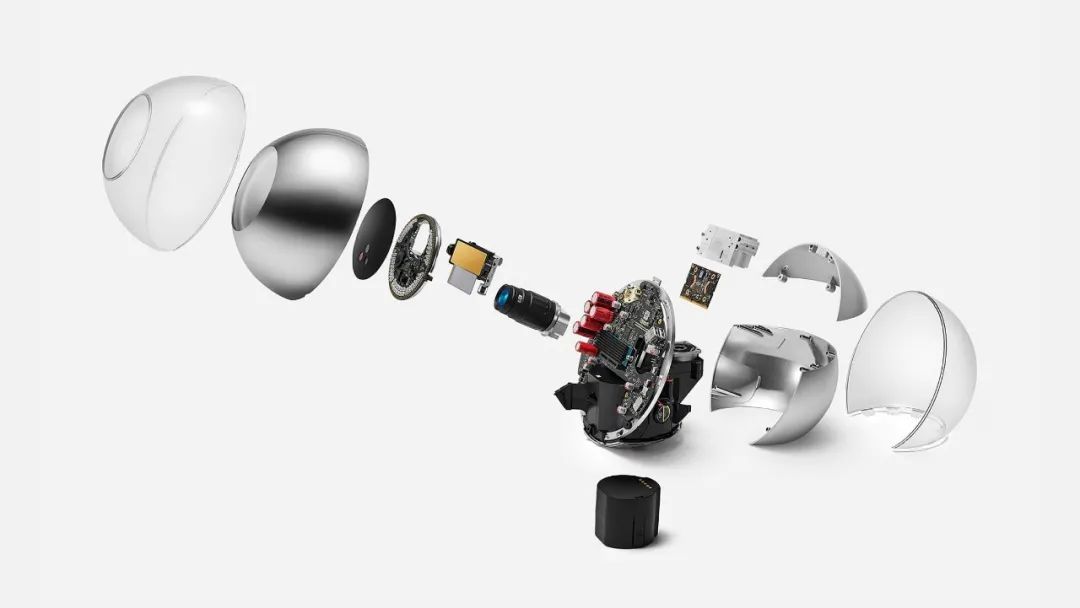
Its main function is to capture the human eye image and convert it into a unique IrisHash. Orb first scans the QR code on the user's mobile phone, then captures multiple high-resolution multispectral iris images, and calculates a unique IrisHash from the images, and finally a set of custom security sensors ensures that the registration is legitimate. This is how Worldcoin verifies that the user actually exists and has received free shares.
Although Orb does not require personal information such as names, addresses, and phone numbers, biometric information collection is obviously more sensitive. In Worldcoin's established scheme, after the eye image is collected, it will be hashed to generate a unique identifier, and then the eye image will be permanently deleted. And use the open source Semaphore zero-knowledge proof system to enhance privacy protection.
Worldcoin co-founder Alex Blania said in an interview with CoinDesk in October 2021 that the amount each person receives depends on the amount they receive in the early stages of the project, and as more and more people join, the amount will gradually decrease, but the amount Roughly between $10 and $200. The money will be released over two years, with 10% immediately available in the Orb-generated wallet app.
The company's models predict that more than a billion people will have gazed at an Orb by 2023.
quagmire of controversy
Starting from the second half of 2021, Worldcoin has launched a series of local promotion activities. On the streets of some countries and regions in Africa, South America, Europe, and Asia, people often see promotion teams carrying silver sphere devices, seeking passers-by to record iris information in their eyeballs. As a reward, participants often get a Small gifts and “vouchers” of cryptoassets claimed to be worth tens of dollars.
The way of anti-cheating by collecting irises is very special, but Worldcoin's initial promotion plan has achieved good results. The company first launched the local push for underdeveloped countries and regions around the world, and recruited multiple Orb operators. The better-performing operators can attract about 1,000 users per Orb device per week. There was also an Orb in a week 2198 users were registered in 2019.

People in poor areas are naturally more receptive to free-sounding gifts, which is apparently one of Worldcoin's strategies. But the good times didn’t last long. Because Worldcoin has not issued Token for a long time, the participants with “empty checks” that could not be cashed began to become anxious.
"Lie, Worldcoin is no different from other scams," one user questioned on social media. Similar voices aroused the echo of many people, especially after not receiving the Token for more than three months, many people regarded Worldcoin as a fraudulent project.
When the overwhelming doubts hit, the official Worldcoin team was not the first to bear the brunt. Orb operators around the world became the first shield.
Since Orb operators directly contact users, users vent their dissatisfaction to them immediately. "It's been over three months now, what have you done to our eyes?" one user wrote in a text message to the Orb operator, while others called the Orb operator a "thief" and accused it of stealing. Gone are the biological data of their own eyes.
According to an offline operator, their team received hundreds of angry text messages about Worldcoin, putting them under tremendous psychological pressure.
In fact, most of the Orb operators do not belong to the Worldcoin company, they are third-party promotion teams that the company looks for, and get paid according to the number of registered users. According to the operator, in addition to accusations from users, they are also faced with many problems such as equipment failure, performance pressure, and changes in the salary structure.
According to a document learned by foreign media BuzzFeed, operators who have registered less than 500 people for two consecutive weeks means that they have not reached the standard, and then they will lose their Orb equipment; at the same time, operators in some African countries are approved , quit his old job, and spent money to print Worldcoin T-shirts as merchandise, but it took Worldcoin 5 months to ship the Orb to them, and there were defects when it was delivered; Constantly adjusting the income received by Orb operators, they must complete as many registration goals as possible in order to maintain income levels.
Today, many users and Orb operators are dissatisfied with Worldcoin, and some operators even chose to strike. Beyond these negative sentiments, the bigger challenges facing Worldcoin are privacy and regulatory issues.
Collecting human biological information is inherently very sensitive. Earlier, former CIA employee Snowden publicly criticized Worldcoin for using human body information for encryption. He said that "the human body is not a ticketing machine." Worldcoin saved the hash generated by the scan and matched it with future scans. , "This is bad."
In the face of privacy disputes, Worldcoin has stated that it is only to ensure the anti-cheating effect. Once the company's algorithm is optimized, all iris databases will be deleted. But the deletion is difficult to monitor, and the company did not say when the algorithm was optimized or when it stopped collecting data.
Since this global project has collected hundreds of thousands of eye images in more than 20 countries, Worldcoin has also been increasingly noticed by national regulators.
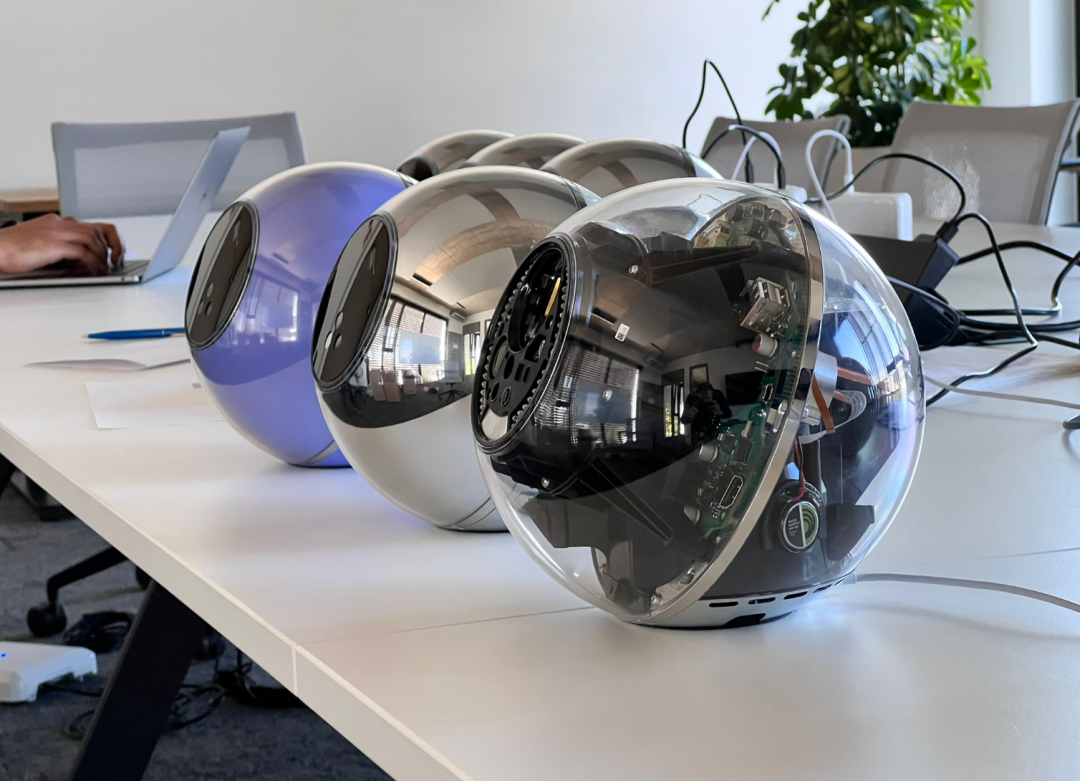
At present, many countries have regulations that do not allow commercial companies to transfer private data abroad, and Worldcoin has obviously touched this red line. Take Kenya, for example. The African country has passed a data protection law that prohibits companies from transferring biometric data abroad without approval from the newly created Office of the Data Protection Commissioner. According to the data consent form, Worldcoin currently processes user data in the United States, the United Kingdom, Germany, Japan and India.
Controversy over privacy violations and legal issues have hindered the development of Worldcoin. Worldcoin has halted plans to operate in at least seven countries after Orb operators left or were banned from doing business by regulation, according to Bloomberg.
Worldcoin, which was named after the "world currency" and aimed at it, has fallen into a quagmire. Even with the blessing of a luxurious VC lineup, under the multiple dilemmas of fraudulent inquiries, privacy violations, and violations of privacy protection regulations, the legal problems of the Worldcoin project itself directly threaten its survival. The goal of "world currency" seems very unrealistic.
advance underwater
On August 24, 2022, Techcurch reported that Max Novendstern, co-founder and CEO of Worldcoin, had resigned and founded the start-up company Mana.
On the surface, Worldcoin seems to have become the kind of "death-level project" with a lot of thunder and little rain: delay in issuing coins, no subsequent financing, a disintegrated team, "political correctness" of privacy, third world countries The political red line of human rights, the "ethical controversy" of biological information collection, and the promotion method with a strong flavor of pyramid schemes. Even the founder Sam Altman himself has not mentioned the project in public for a long time. Zhongle doesn't think about Shu, and completely forgets about his other young son.
But if you carefully observe Worldcoin's official Twitter and think about it, you can find that the project is actually moving forward in an orderly manner. Lianchuang Max Novendstern resigned as early as the early stage of the project in 2021 to start an independent business. This time point means that the resignation has nothing to do with the quality of the team and the project itself, and with Sam Altman’s influence in Silicon Valley, the funding problem is obviously not The item's resistance. Worldcoin once disclosed the idea of transforming the company into a non-profit organization in a statement. It is hard not to think of Sam Altman’s operation on OpenAI-enough pure original intention and practical technical route .
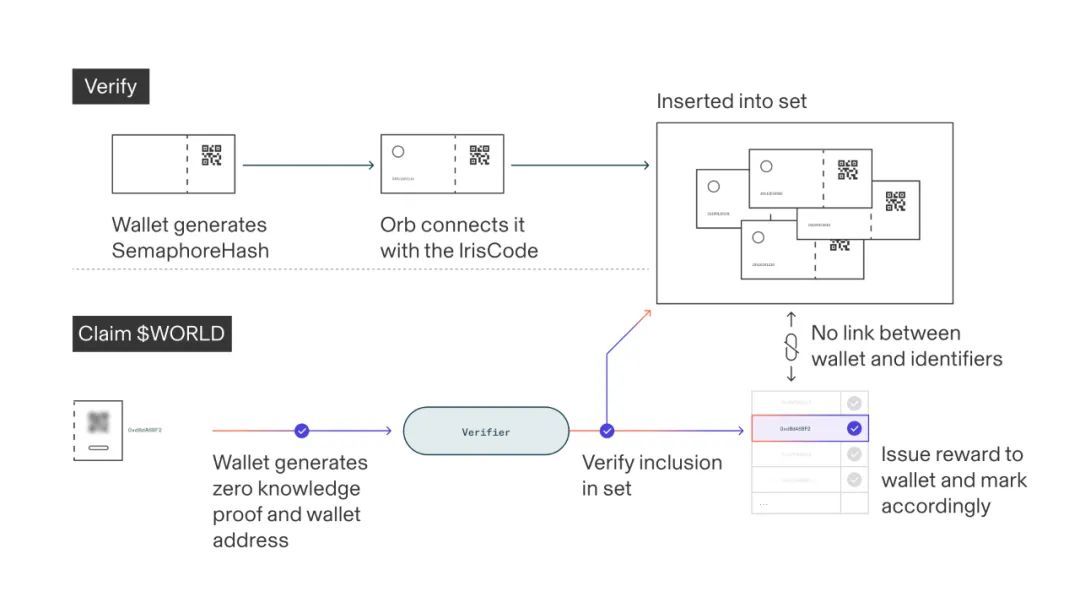
Worldcoin disclosed the working principle of World ID (our Privacy-Preserving Proof of Personhood Protocol) in the recent official progress, and re-emphasized that throughout the process, unless the user explicitly agrees to data custody, the image will never leave Orb, and IrisCode There is no link between the wallet and the user's wallet, and the protocol fully guarantees algorithm-based one-way privacy.
World ID can be regarded as another completely different path in the "DID" solution, aiming to solve the sybil attack and human rights issues in privacy identity once and for all. Once successful, it will have a profound impact on the entire public chain ecology and Web3 social interaction. World ID announced in October 2022 that it will cooperate with Lens to introduce iris codes into its identity verification process. Similarly, iris codes will not reveal your identity, but only ensure uniqueness.
On January 27, 2023, Worldcoin announced that after three years of promotion, the number of participants exceeded 1 million, and for the first time disclosed the design and working principle of the hardware Orb, preparing for a larger-scale open source in the future. It seems that everything is proceeding in an orderly manner.
OpenAI has been dormant for many years, and there are many people who have heard of it, but people mostly think that it is a game of big shots. Until ChatGPT was played, Fang exclaimed that technology needs pure original intentions. However, Worldcoin's sloppy snake line, foreshadowing thousands of miles, is it not another original intention of Sam Altman?
It is too small to talk about the pattern of issuing coins, but we might as well pay attention to the progress of the project; when talking about dreams, it is said that the heart is higher than the sky, and the market just follows the dreams. The market is in full swing, and maybe it's just the beginning of the next big feast.
Original link: https://www.theblockbeats.info/news/34443
Like my work?
Don't forget to support or like, so I know you are with me..
Comment…